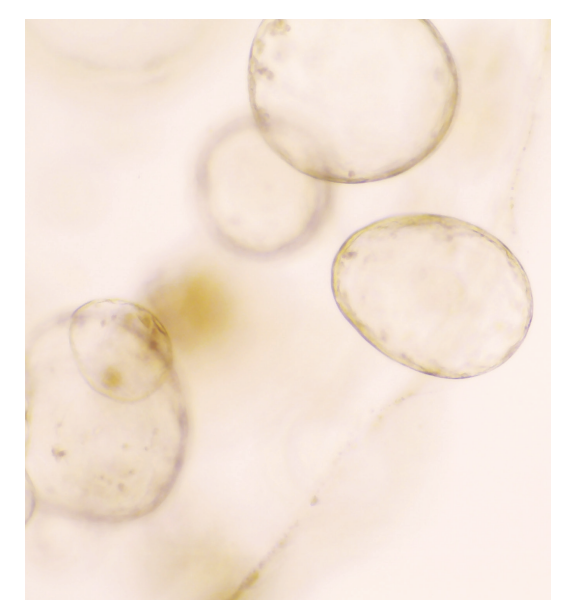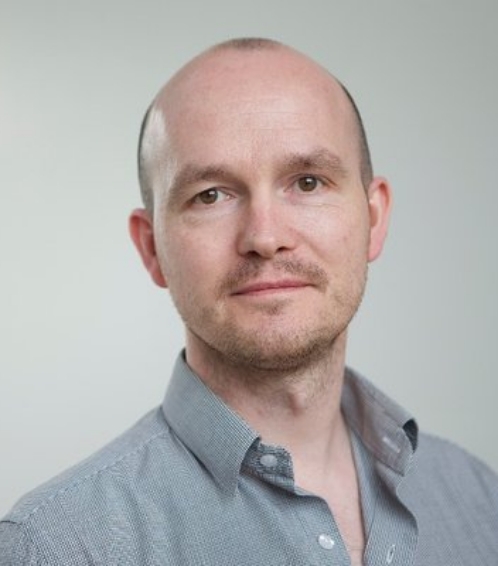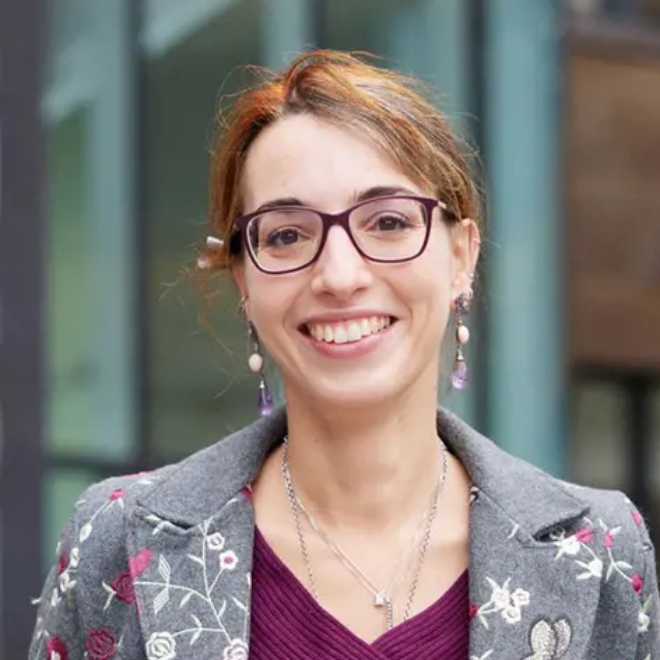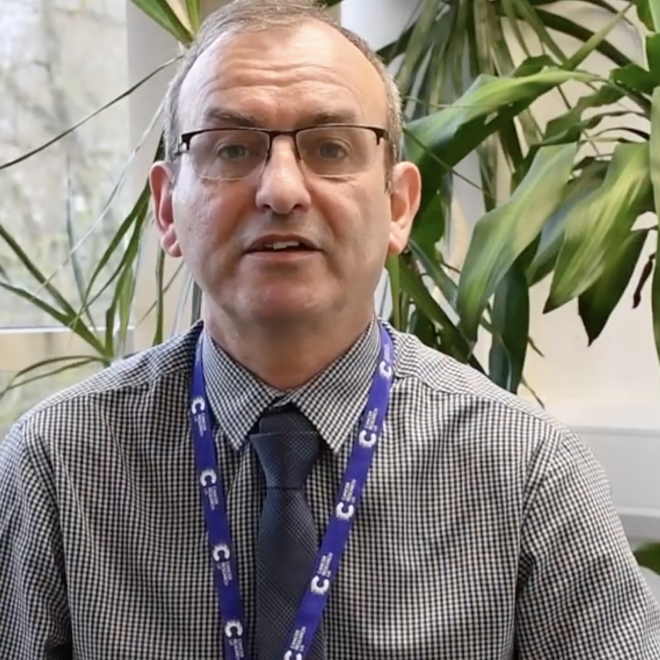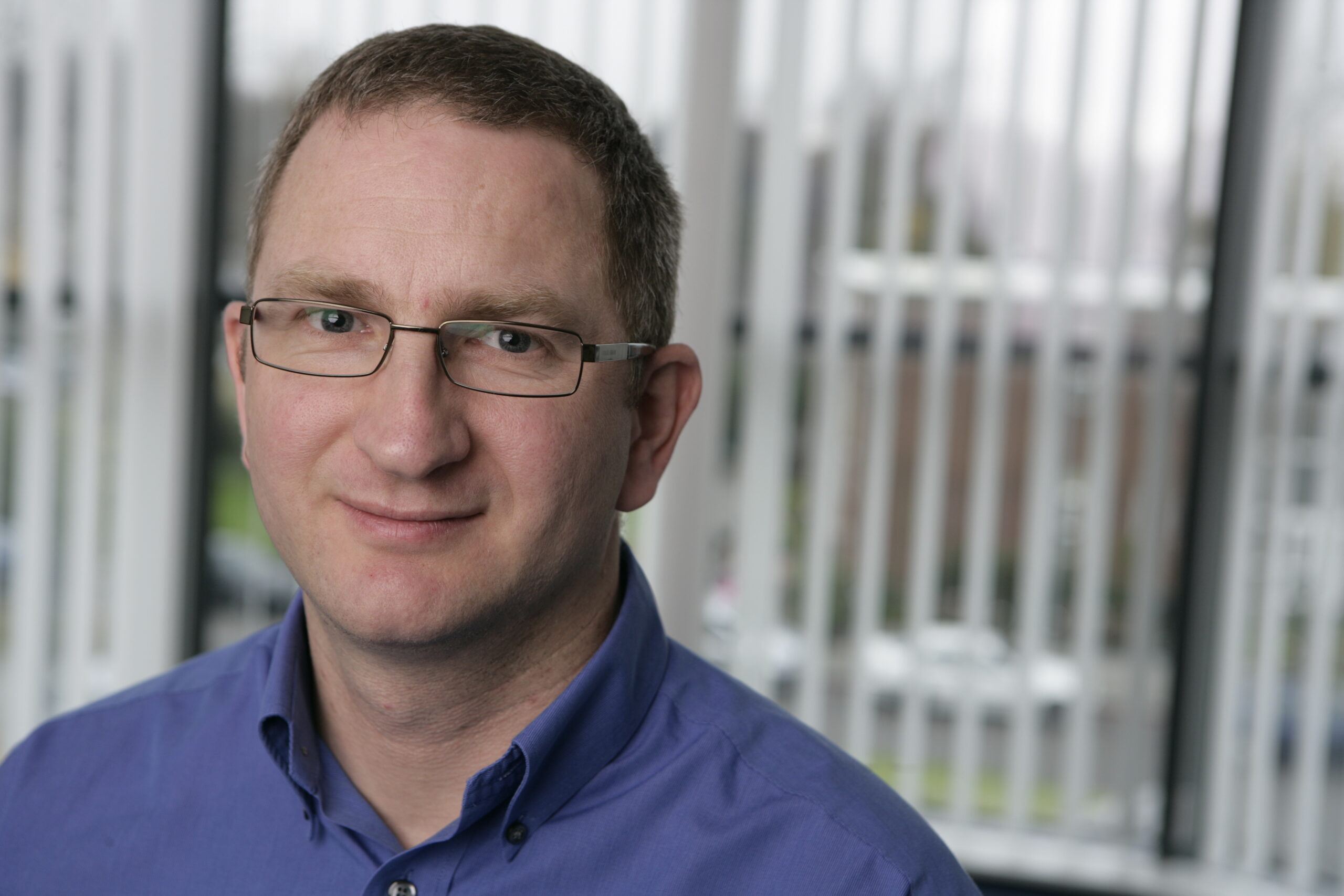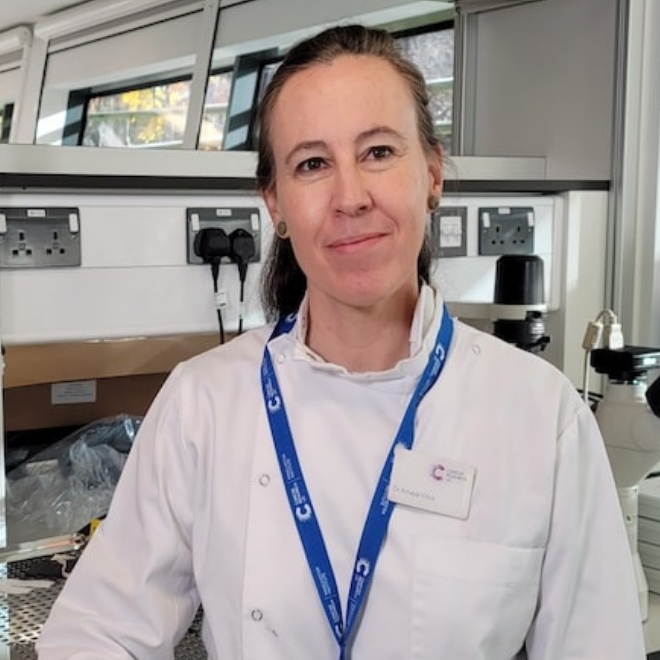Claus Jørgensen
Deputy Director of Cancer Research UK Manchester Institute | Systems Oncology Group Leader
Claus is Deputy Director and a Senior Group Leader at the CRUK Manchester Institute. He heads the Systems Oncology group, which focuses on the complex interactions between malignant and normal cells, with a particular interest in pancreatic cancer.
About Professor Claus Jørgensen
Claus Jørgensen obtained his BSc in Biochemistry and Molecular Biology at the University of Southern Denmark, Odense Denmark in 1999. At the same University, he later received his PhD in 2005. His first Post Doctoral position took him to Toronto, Canada, and the Samuel Lunenfeld Research Institute, under the guidance of Professor Tony Pawson. It was during his four-year training with Prof Pawson that he developed a keen interest in reciprocal signalling.
In 2010, Claus moved to The Institute of Cancer Research, London, to lead the Cell Communication Team. Here, he focused on using and further developing an experimental platform to interrogate heterotypic cell signalling and its impact on tumour formation and progression. In 2011, he was awarded a CRUK Career Development Award.
Claus joined the CRUK Manchester Institute in early 2014 to form the Systems Oncology group, which will focus on the complex interactions between malignant and normal cells, with a particular interest in pancreatic cancer. In 2017, he was awarded an ERC Consolidator Grant, and was promoted to Senior Group Leader at the Manchester Institute. In 2022, Claus became Professor of Cancer Biology at the University of Manchester, and in 2023 he was appointed as Deputy Director of the Cancer Research UK Manchester Institute.
Groups
Qualifications
- PhD in Molecular Biology | 2005 | Syddansk Universitet – University of Southern Denmark
Interests
- Tumour microenvironment
- Pancreatic cancer
- Cell signalling, Systems Biology and Complex Cell Models
Research Projects
Publications
- Oncogenic KRAS Regulates Tumor Cell Signaling via Stromal Reciprocation
- A framework for advancing our understanding of cancer-associated fibroblasts
- Anti-Inflammatory Drugs Remodel the Tumor Immune Environment to Enhance Immune Checkpoint Blockade Efficacy
- A microenvironment-inspired synthetic three-dimensional model for pancreatic ductal adenocarcinoma organoids
- Single-cell analysis defines a pancreatic fibroblast lineage that supports anti-tumor immunity.
Why I work at CRUK MI
“It is inspirational! Throughout the Institute we’ve got people doing amazing science at many different levels; it’s a blessing to walk in every day and be greeted by outstanding colleagues in a supportive environment.”
Visit Research Group
Tumours are complex ecosystems where cancer cells are embedded within an intricate stromal microenvironment comprising multiple infiltrating cell types and pathological changes to the extracellular matrix. The aim of the Systems Oncology laboratory is to determine and define how tumour cells conscript host cells to support tumour development and resistance to therapies. Understanding these rules will enable the development of rational combination therapies targeting both tumour cell intrinsic dependencies as well as their extrinsic dependencies on stromal reciprocal signals.
Due to the complexity of the microenvironment and the cellular interactions, we use a combination of complex in vivo models and reductionist approaches to define the rule set by which individual stromal cell populations regulate tumour cell function. Using these approaches, we have identified and characterised a number of tumour and stromal-derived signals, which engage tumour cell signalling to promote tumour cell survival, metabolic reviewing and metastasis, alongside stromal fibroblasts with anti-tumour activity.
We also work to develop patient-derived models that recapitulate salient features of the tumour microenvironment. As an example, tumour cells can now be cultured in fully synthetic gels that also support stromal cell co-culture and tuning of the rigidity to accurately recapitulate these features of the tumour environment. Tumour cell function is critically dependent on the local milieu and our work emphasises the importance of taking the environment into account when devising therapeutic strategies. Using these models and approaches we are currently working to determine optimal strategies for therapeutic targeting of the microenvironment.
Get in touch
All publications
https://doi.org/10.1038/s41420-025-02582-x
Mutant p53 induces SH3BGRL expression to promote cell engulfment
1 July 2025
Institute Authors (5)
Garry Ashton, John Weightman, Wolfgang Breitwieser, Sudhakar Sahoo, Antonia Banyard
Labs & Facilities
Computational Biology Support, Flow Cytometry, Molecular Biology
1 July 2025
https://doi.org/10.1016/j.celrep.2025.115603
Functional characterisation of the ATOH1 molecular subtype indicates a pro-metastatic role in small cell lung cancer
27 May 2025
Institute Authors (2)
Caroline Dive, Kathryn Simpson
Research Group
Small Cell Lung Cancer Biology
27 May 2025
https://doi.org/10.1016/j.ccell.2025.04.001
Stromal lipid species dictate melanoma metastasis and tropism
24 April 2025
Institute Authors (5)
Amaya Viros, Duncan Smith, Garry Ashton, Alex Baker, Tim Somervaille
Labs & Facilities
Biological Mass Spectrometry, Histology, Visualisation, Irradiation and Analysis
Research Group
Skin Cancer & Ageing
24 April 2025
https://doi.org/10.1038/s41467-025-58343-y
A human model to deconvolve genotype-phenotype causations in lung squamous cell carcinoma
4 April 2025
Institute Authors (4)
Carlos Lopez-Garcia, Robert Sellers, Sudhakar Sahoo, Caroline Dive
Labs & Facilities
Computational Biology Support
Research Group
Translational Lung Cancer Biology
4 April 2025
https://doi.org/10.1186/s12943-024-02157-x
The PI3K-AKT-mTOR axis persists as a therapeutic dependency in KRASG12D-driven non-small cell lung cancer
12 November 2024
Institute Authors (1)
Amaya Viros
Labs & Facilities
Genome Editing and Mouse Models
Research Group
Skin Cancer & Ageing
12 November 2024
https://doi.org/10.1186/s13045-024-01610-0
The small inhibitor WM-1119 effectively targets KAT6A-rearranged AML, but not KMT2A-rearranged AML, despite shared KAT6 genetic dependency
8 October 2024
Institute Authors (6)
Georges Lacaud, Mathew Sheridan, Michael Lie-a-ling, Liam Clayfield, Jessica Whittle, Jingru Xu
Research Group
Stem Cell Biology
8 October 2024
Our vision for world leading cancer research in the heart of Manchester
We are a leading cancer research institute within The University of Manchester, spanning the whole spectrum of cancer research – from investigating the molecular and cellular basis of cancer, to translational research and the development of therapeutics.
Our collaborations
Bringing together internationally renowned scientists and clinicians
Scientific Advisory Board
Supported by an international Scientific Advisory Board
Careers that have a lasting impact on cancer research and patient care
We are always on the lookout for talented and motivated people to join us. Whether your background is in biological or chemical sciences, mathematics or finance, computer science or logistics, use the links below to see roles across the Institute in our core facilities, operations teams, research groups, and studentships within our exceptional graduate programme.



